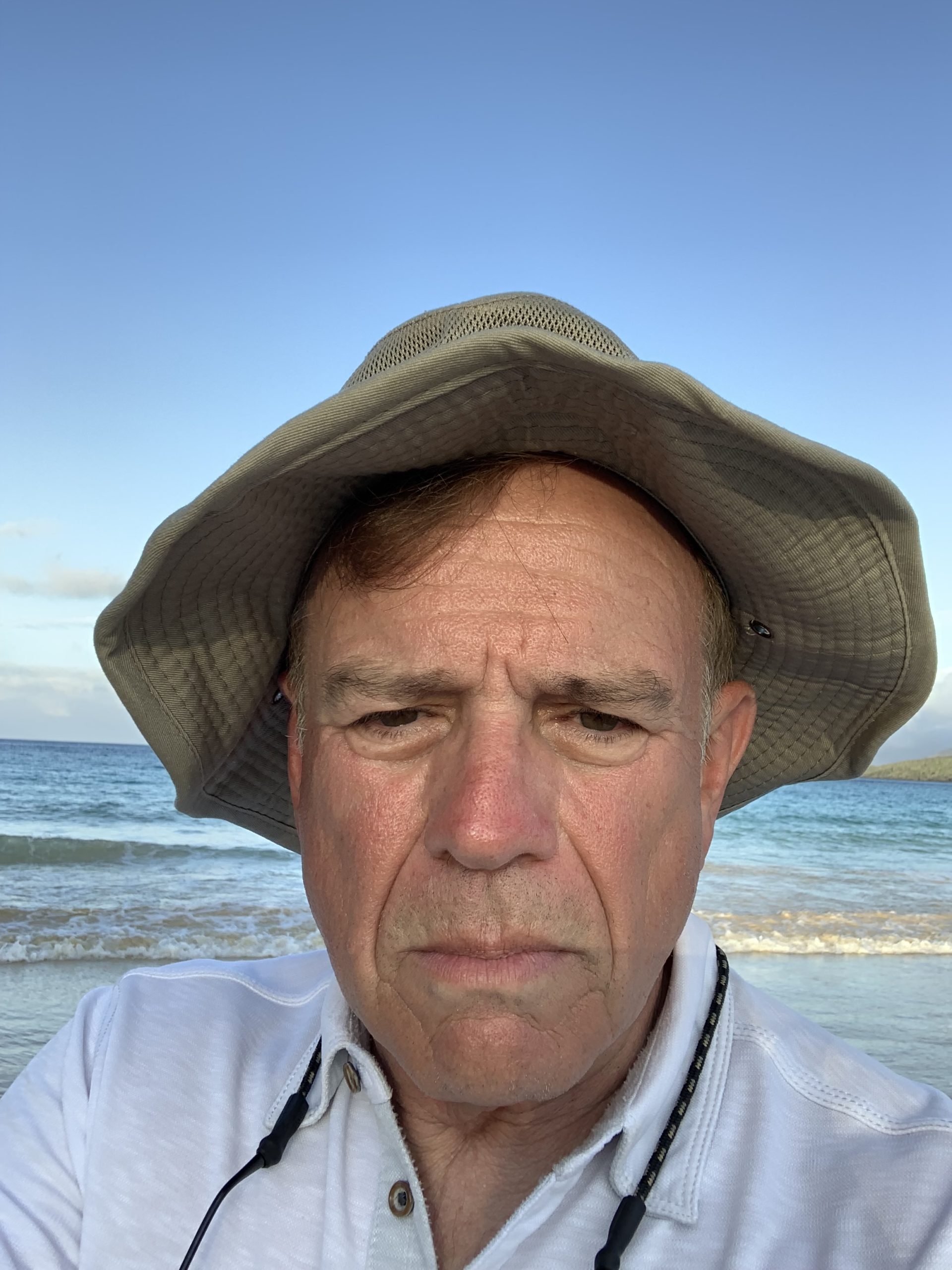by Peter Pavarini
The Spirit of the Lord set me in the middle of a valley; it was full of dry bones…He asked me, “Son of man, can these bones live?”
Ezekiel 37:1,3

Chaco Canyon, New Mexico 2019
Sad to say, but freedom is not breaking out all over the world.
To the contrary, we seem to be entering another period in human history when authoritarian rule becomes commonplace and the percentage of people enjoying the blessings of freedom shrinks. By one measure, the number of people living in “free countries” dropped from 46% in 2005 to only 20% in 2021.[i]
But as with most megatrends, there are hiccups along the way.
Chinese Protests
On February 15, 2023, 20,000 “senior citizens” gathered in Wuhan, China to protest the CCP’s health care reforms which had sharply reduced their benefits. Similar protests have been taking place in other parts of China. What’s remarkable about these demonstrations was not the advanced age of the protestors nor the subject of their outcry. Rather, it’s that the government did virtually nothing to suppress what normally would have been outlawed. When a large group of old people representing 2 million retirees in Wuhan decide they have nothing left to lose by challenging their autocratic leaders, it could be a sign that fear of the CCP is disintegrating.[ii] Fear has always been the most important tool used by autocrats to stay in power.
Even in so-called “mature” democracies like the United States, dissent is routinely suppressed to protect the interests of established elites. And yet, isn’t it amazing how the truth always seems to sneak out despite being targeted by the most coordinated disinformation campaigns? Three years after the COVID pandemic turned the world upside down, a batch of new research studies have shattered many of the prevailing myths about the disease and its treatment. Emboldened whistleblowers are beginning to emerge from the shadows to reveal details about the origins of the virus and what Big Pharma, the public health agencies and the medical establishment did to mislead the public.
Courageous Whistleblower
One example is Debbie Bernal, a young woman who used to work for Pfizer until she was harassed, interrogated and eventually fired for exposing corporate lies concerning its COVID vaccine. On March 4, 2023, Bernal spoke about her experience at the Conservative Political Action Conference in National Harbor, Maryland. Her comments were an impressive display of courage:
“I think we all need to learn not to be fearful. Fear is how the enemy controls us. The reason the country is going the way it’s going is because of fear. People are willing to give up their freedom and liberty to feel safe. We can’t do that. Freedom is not free.”
“Your Freedom Isn’t My Freedom”
It’s ironic that, in a society which places so much importance on purging itself of past injustices such as slavery, discrimination against minorities and behaviors that are no longer tolerated in today’s culture, there’s a growing willingness to abolish many of the fundamental rights upon which our nation was founded (e.g., freedom of assembly, freedom of association, freedom of religion, freedom of speech). Just like absolute truth, freedom has become Balkanized into a variety of strains which are necessary to justify opposing world views.[iii]
Lesson From Jewish History
What prompted me to write this blog was a book I just finished reading by my favorite Canadian author, Michael D. O’Brien. By the Rivers of Babylon[iv] is a fictionalized account of the early life of Ezekiel, the Jewish prophet who was among the Jews enslaved by the Babylonian king Nebuchadnezzar for 70 years beginning 598 BC. This was not the first time the Jewish people had been enslaved by another nation. Most notably, the Jews had been held captive by the Egyptian pharaohs for as many as 430 years before that, and by the Assyrians for a shorter period of time around 722 BC. Setting aside the factual accuracy of these dates or whether the current definition of slavery aptly describes the Jewish experience, there’s no question that the beliefs and traditions of the Hebrew people were fundamentally shaped by these events.
As O’Brien tells the story, before Ezekiel became the revered Old Testament prophet, he served as a common brickmaker in Babylonia. He had been studying to become a priest in Jerusalem when Babylonian forces sacked the city and forced him and thousands of other Jews into bondage.
I find the theological basis for the Jews’ captivity more instructive than the political and economic reasons why Babylonia was able to overrun the Jewish nation. No matter how powerful Babylon was compared with Judea at the time, its victory would never have been achieved but for the poor spiritual condition of the Jewish people.
Why the Jews Were Held Captive
Theologians give three reasons why this happened.
First, despite having been rescued by God time and again in the past, the Jews had reverted to their prior practice of worshipping foreign gods. As credibly illustrated by O’Brien in his book, this was a deliberate act of rebellion on the part of many if not most Jews.
Secondly, the Jews had fallen into the habit of paying tribute to foreign powers – first to Babylon, then in desperation to Egypt (the nation that had previously enslaved them). Why would they have done such a thing? Quite simply, to be assured of their safety and security. Rather than trust God, the fell for the oldest trick in the book – paying for protection.
Lastly, they had violated the code of conduct God had given them in the form of the Ten Commandments. They no longer honored the Sabbath, their leaders and priests had become corrupt, they had perverted their system of justice, and they engaged in the same hedonistic lifestyle as their foreign captors.
I found O’Brien’s portrayal of Ezekiel’s captors to be the most compelling part of the story. When Ezekiel encountered a few enlightened Babylonians during his captivity, they were amazed by his self-discipline and willingness to trust God despite his miserable circumstances. One even offered him a privileged position in Babylonian society that would have effectively freed him from his captivity. But Ezekiel refused saying he belonged with his people.
By the Rivers of Babylon ends well before the Jewish people are freed from their captivity by Persia’s conquest of Babylonia. But the reader knows the stage has been set for a spiritual revival.
Some consider God’s questioning of Ezekiel, referenced at the top of this blog, to be merely rhetorical. After all, wouldn’t an all-knowing God know what He had already planned? However, Ezekiel’s answer was entirely dependent upon the strength of his faith. If he would prophesize to his people and convince them to trust in God without reservation, then the dry bones of this wasteland would indeed rise and again become a living, breathing person.
America’s Need for Revival
I yearn for the dramatic revival contemplated by the book of Ezekiel. I too feel as though my people have been held captive for 70 years and have lost trust in the leaders, cultural icons and institutions that have led us to the desolate place we are in. I’m convinced we’ve surrendered much of our God-given freedom to enemies, both foreign and domestic. We’ve done so in exchange for the false hope of safety, security and material comfort. We’ve compromised the “sacred honor” pledged by our Founders but secured none of the blessings of liberty they had promised future generations.
Atop the dome of the U.S. Capitol stands the Statue of Freedom, a 7-½ ton bronze casting which depicts the kind of freedom Americans once universally believed in. She is an allegorical figure in whose right hand is a sheathed sword and, in her left, a laurel wreath of victory and the shield of the United States. Draped over her left shoulder is a Native American-styled blanket. She faces east to the rising sun, She wears a military helmet adorned with stars and eagle’s head crowned by an umbrella-like crest of feathers. She stands on a globe encircled by our national motto E pluribus unum. The statue was lifted to its current position in the middle of a civil war that had rescued America’s ideal of freedom from the malevolent forces opposing humanity since the dawn of history.
The American people find themselves in a modern valley of dry bones. We are faced with a choice not unlike the one faced by the Jews of old. We can continue to pay tribute to foreign powers, choose safety over self-reliance, and rebel against our most cherished values because we imagine there are no consequences for doing so. Or we can soar on the wings of an eagle and revive the true freedom which inspired the founding of our nation.
I expect we will soon learn whether the dry bones of our Republic can still be brought back to life.
[i] It is extremely difficult to find objective measures of free versus oppressive societies. But even a Left-leaning organization like Freedom House points to the same warning signs that are troubling to people on the Right. In its annual report,”Freedom in the World 2022: The Global Expansion of Authoritarian Rule”, authors Sarah Repucci and Amy Slipowitz found four trends that should have everyone worried: 1) countries are dropping the pretense of competitive elections, 2) coups and power grabs are proliferating, 3) illiberal practices are causing democracies to rot from within, and 4) a growing number of rogue states are forming antidemocratic alliances. The Global Expansion of Authoritarian Rule | Freedom House
[ii] The protests in China have received remarkably little attention in the American media. The best coverage can be found in the The Epoch Times. See Zhang Tianliang, “Large-Scale Protests in Wuhan Post Unprecendented Threat to the CCP”, The Epoch Times, February 22-29, 2023. See also, “China: Despite Restrictions, Citizens Conducted Hundreds of Protests Across China in Recent Months”, Freedom House, November 14, 2022.
[iii] Freedom is generally understood to mean having the ability to act or change without constraint or to possess the power and resources to fulfill one’s purposes unhindered. Although often used interchangeably with liberty, there are subtle but important distinctions. Whereas freedom connotes the ability to do as one wills, liberty concerns living unrestrained but subject to one’s capabilities and limited by the rights of others. Since Franklin D. Roosevelt introduced the Four Freedoms which the allied nations fought to protect during World War II (i.e., freedom of speech, freedom of worship, freedom from want, freedom from fear), political freedom has diverged sharply from the traditional meaning of “free will”.
[iv] Ignatius Press, 2022.

Be First to Comment